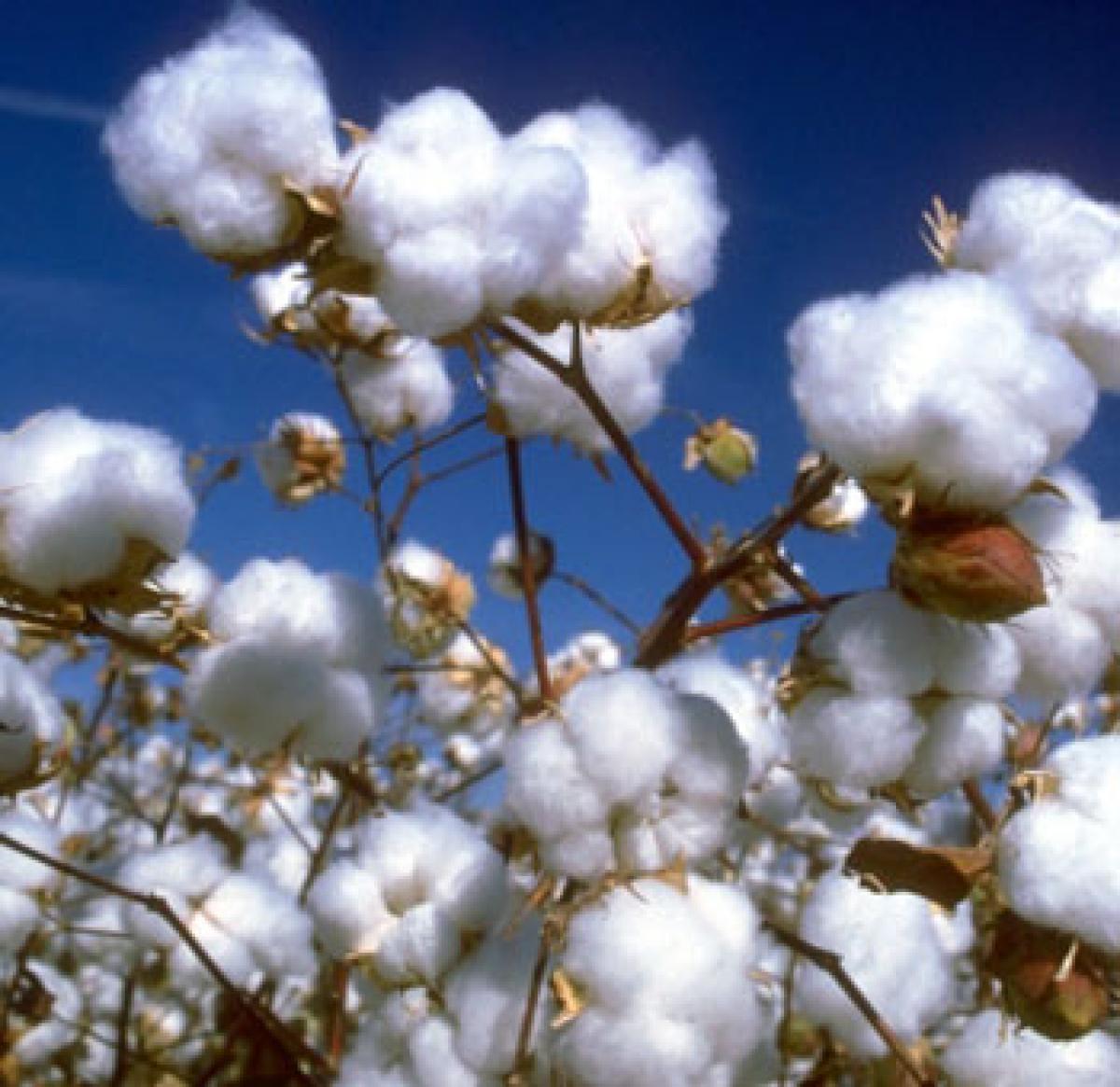Restore seed sovereignty of ryots

Whether it is traditional farming or modern agriculture, ‘seed’ remains the critical input of crop production. India farmers for a long time conserved and improved the seeds and retained the seed sovereignty.
In the wake of loss of self-sufficiency in seeds production by farmers, particularly in the case of cotton, due to proliferation of hybrid varieties, a movement of farmers, civil societies and scientists has begun in both Telugu States.
They point out the havoc caused by toxic genes inserted by MNCs into germ plasm of indigenous crop seeds. Alarmed by serious attempts to expand this trend (of transgenics through hybrids) to food crops and oilseed crops, the concerned people came together and improved upon the old cotton varieties.
For the last three seasons, desi varieties are said to be yielding nearly as much output as Bt varieties, but with lower costs and no adverse impact on the environment
Whether it is traditional farming or modern agriculture, ‘seed’ remains the critical input of crop production. India farmers for a long time conserved and improved the seeds and retained the seed sovereignty.
In the era of Green Revolution that responsibility was shared by public research institutes in India. However, government policies in the last over two decades made the farmers as well as the scientists of public institutions to lose their rights on seeds; their role was shrunk in other principal inputs of agriculture.
The initiative of snatching away of seeds sovereignty of farmers in the name of genetic manipulation started with cotton, the major fibre and oilseed crop of India. Now, the genetic modification technologies have intruded into vegetables and oilseed crops besides major food crops of the country.
It is time to review the impact of new trends of seed improvement, evidenced with the transformations, in an important crop like cotton.
Patel’s fibre revolution
India is one of the major cotton producing countries. It is unique in resorting to heterosis breeding techniques in a crop like cotton, to develop hybrid seeds that are to be replaced every season by farmers.
This transformation of 1970-90s resulted in relegation of all local cultures as well as improved varieties of both American (hirsutums) and Asian (arboriums, herbaciums) origin to secondary status. The availability of physical labour (including child labourers) in many regions of the country created congenial conditions to expand Dr Patel’s discovery of heterosis cotton-breeding technique.
Following this turn towards hybrids, which temporarily improved cotton yields in States like Andhra Pradesh, Punjab, Karnataka, Gujarat, Maharashtra and Madhya Pradesh, new problems surfaced at alarming levels.
Use of agro-chemicals (fertilisers, pesticides) grew extraordinarily and requirement of artificial irrigation interventions increased. Simultaneously insect outbreaks have become a frequent affair in the regions where cotton is grown extensively.
However, many of the cotton growers could not move out of this crop cultivation, since there was no appropriate alternative and reasonably remunerative as well as commercial oriented rainfed crop.Market network expansion, absentee landlord-type crop production, industrial orientation and trader’s virtualisation techniques facilitated spread of this crop even in less suitable shallow soil areas and exclusively rainfed regions in States like AP and Telangana.
Entry of Transgenics
At this juncture of frequent crop failures and crisis-ridden cotton crop production, the era of transgenic crop varieties started in USA like developed countries. Of course, for India, transgenic cotton means only toxic (Bacillus thuriengenesis) gene impregnated hybrids. These were released by US-based Monsanto company through its local partner, Mahyco seed company.
However, these Bt Cotton hybrids christened as Bollguard (MECH series) did not find the favour of farmers because of their unsuitable agronomic characters. Naturally, the other local seed producing companies that already maintain cotton cultures, varieties and hybrids – whose origin can be traced in farmers’ fields as well as germ plasm of public institutes – exploited the situation.
Monsanto, instead of banking on the public institutes of agricultural research (ICAR, State agricultural universities), extended their patented toxic gene technologies to these local companies, who agreed to pay royalty of abnormal level, as compared to China, US and Pakistan.
It is a point to keep in view that none of these local companies or Monsanto-like MNCs ever paid any royalty to the cotton germ plasm or varieties (base material that received toxic genes of local origin) obtained from farmers or public institutes.
Virtualisation of trade through dubious statistics
Monsanto realised the open advantage of the typical cotton production situation in India, unlike in countries like America, China, Australia and Brazil where F1 hybrids do not find a place in cotton production. Similarly, absence of competent regulatory bodies in India came as handy.
The role of trade regulatory bodies was diluted and state-level research establishments were also abnormally disturbed as evidenced in mutual deals (Indo-US Knowledge Initiative on Agriculture). As a result, since 2009, cotton in India means only Bt or Bollguard cotton hybrids.
Both research and extension wings at all levels were moulded to promote and market the Bt cotton packets, sponsored by local companies that have become brokers between farmers and Monsanto. Naturally, the seed sovereignty of the farmers or public institutes with special reference to cotton disappeared in due course of time.
Now there are serious attempts to expand this trend (of transgenics through hybrids) to other crops. Bt brinjal is attempted to spread in our ecosystems. Similarly, several food crops, impregnated with toxic genes under the guise of high-yielding hybrids, are also proposed to replace the existing local varieties.
Currently, Bt mustard is shaped to occupy the mustard growing regions of the country. A temporary moratorium was imposed by the previous government, in response to peoples’ movement and logical verdict of Supreme Court, rational reports of technical expert committee as well as recommendations of a Parliamentary Advisory Panel.
However, the Union Governments (past and present), evidenced with the expressions and deeds of agricultural ministers as well as ministers –in-charge for environment and forests, are in a hurry to lift the moratorium on transgenic crops to save the interests of transnational seed companies at the cost of farmers and seed sovereignty.
What is the alternative?
A few individuals and several non-governmental organisations, which work for sustainable agriculture and aim for environmental protection, oppose this trend and fight against these toxic gene-based seeds. However, the policy-makers and groups that believe in ad hoc gains, distort the issue, by branding them as people of anti-science and conservatives in assessing events of technology.
Hence, there is a need for an appropriate peoples’ science movement to enlighten experts of socio-political field and organise the peasants to fight against monopoly trade in this era of gene manipulations.
Dr Verghese Kurien, the great inspirer and the doyen of cooperative milk producers movement in the country, showed a way for competing with companies that dilute the role of principle stakeholders in food production and exploit local resources, ultimately snatching the self- dependence which is attained through long struggles and sacrifices .
In that context, a small movement, ‘Manakosam Manam’ is initiated by various groups that work for crop seed improvement and organising farmers on socio-political and economic issues. Subsequently a registered body of Rythu Rakshana Vedika, comprising activists in the field of farmer organisations and peoples’ science movement as well as experienced farmers took shape in Andhra Pradesh and Telangana, where crisis-ridden cotton production has become a frequent phenomenon.
This group facilitated formation of a Cotton Crop Growers Mutually Aided Cooperative Society, by involving more than 1,000 peasants of major cotton-growing districts of these States. These farmers were provided with the cotton seeds that were developed and promoted by public institutes.
However, none of those varieties – Narasimha, Mahanandi, Ndl,1938, Suraj – did perform as Bt hybrids – which originated from these stolen varieties – though the input costs were comparatively low.
The society later could identify few cotton cultures with better yield potentiality as well as pest tolerance, besides other virtues like boll size and lint quality on par with Bt hybids. The performance of these varieties was tested even in low input intensive areas (shallow soils and rainfed) of Warangal, Nalgonda, Guntur, Khammam districts, and they were found promising in true sense.
During the past three seasons, these seeds of Rythu Rakshana Vedika varieties and hybrids performed well in almost all regions on a par with the costly company Bt hybrids. In the current season (2015-16), the varietal component expanded with the support of public research institutes also.
The society members now seek to expand further so that a massive movement on seeds for farmers would take shape in the country, so that seed sovereignty can be restored to the farmers.










